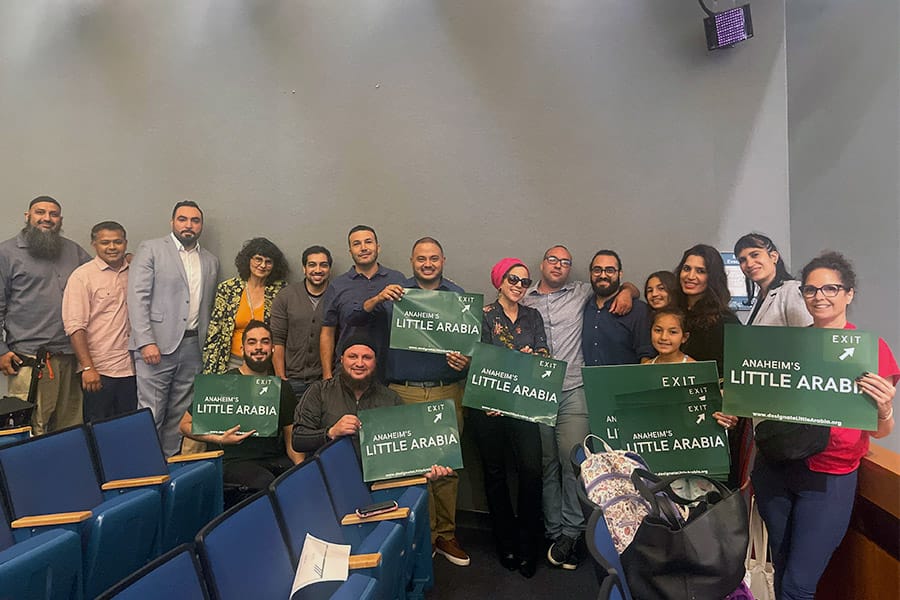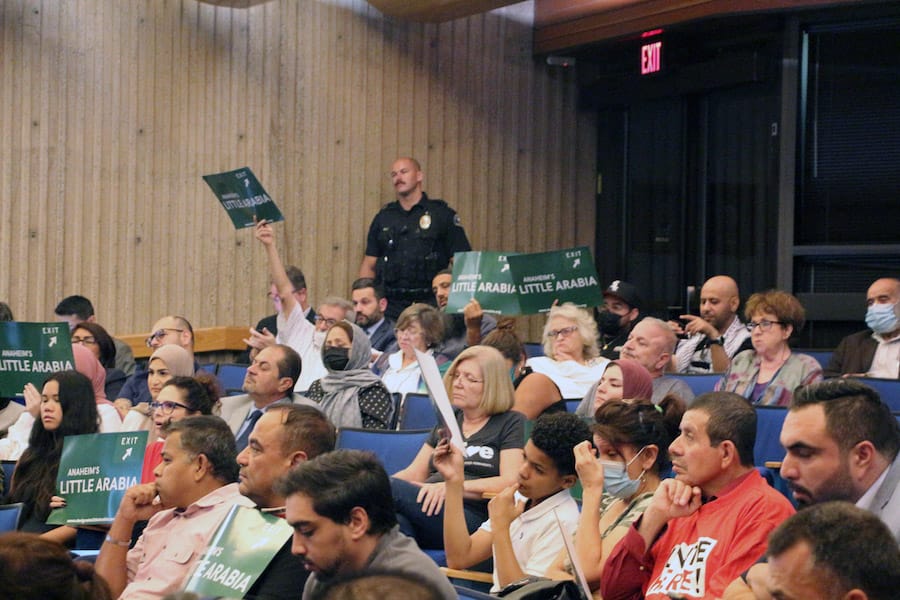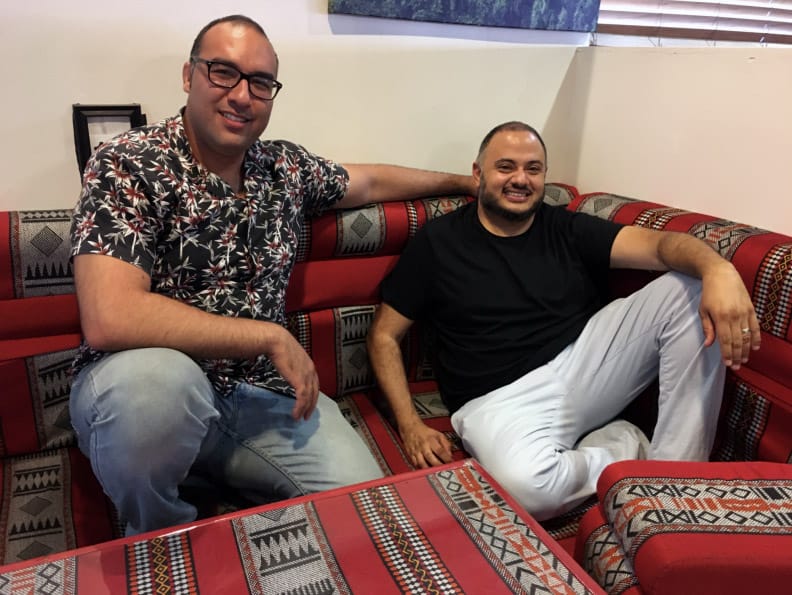CGU-Fueled Research Helped Inspire the Making of Little Arabia

Amin Nash’s research and work with the Arab American Civic Council has been getting attention in the media, and for good reason. After working with local community members and government officials to bring an official designation to Anaheim’s Little Arabia neighborhood, publications like The Guardian and Los Angeles Times wrote glowing reviews of his work but left out some key points:
“I never got to express how Little Arabia unifies many people of different backgrounds in a shared sense of belonging,” Nash says. “I think the location in Anaheim has allowed people to acquire a feeling of freedom that they couldn’t get in their home countries but still have a sense of comfort, culture, and belonging.”
Nash noted that despite the name Little Arabia, one of the first businesses in the neighborhood was run by a family from Iran. This, along with an influx of Afghan refugees and a long history of Armenian influence, made it difficult for some outside the community to buy-in to the name Little Arabia, but the diverse members of the community felt the name reminded them of home. Overall, he hopes that Anaheim’s official recognition of Little Arabia can combat the feelings of victimization felt by some Arab, Middle Eastern, and Muslim Americans in the wake of 9/11, showing instead how diverse and strong the neighborhood has become. “I feel that there were times the community came together to celebrate their diversity, which is a welcome change.”

First enrolling as an English master’s student in 2018 before entering the English PhD program in 2021, Nash attributes his nuanced understanding of complex social issues along with his practical project management, data science, and community outreach skills to his CGU education. He outlined the ways his CGU coursework provided him with the skills to eventually work with the Arab American Civic Council, beginning with Professor David Luis-Brown’s Hemispheric Literatures Course, where he was introduced to literary methods and comparative readings of people in the diaspora. The following year, during an International Studies course with Professor Sallama Shaker, he noted the importance of the mediation and negotiation skills he acquired.
“This class helped me with public diplomacy, specifically when working with Anaheim’s City Council, making public comments, speaking with California’s State Senators, and dealing with the US House of Representatives when I was in Washington, DC.” In the fall of 2019, Nash took the 20th Century US-Identities history course Third Places of Being with Professor JoAnna Poblete providing Nash, “with the space and permission to study Arab American histories and experiences within the country.”
After completing his master’s, Nash enrolled in Professor Eric Bulson’s Lit as/and Data course through CGU’s Alumni Lifelong Learning Program, where he learned the tools and methods to conduct advanced research and data collection that would be crucial to his work with the Arab American Civic Council. This course prompted Nash to continue his studies at CGU, entering the English PhD program and enrolling in Professor Paul Faulstich’s ethnography course “that provided me with the techniques, methods, and approaches I needed to do field research on my specific population.”

Nash’s coursework and career trajectory point to the transdisciplinary ethos of a CGU education. While researching Little Arabia for the Arab American Civic Council, Nash conducted 30 open-ended interviews with business owners and stakeholders that he turned into unstructured data, using text analysis tools to visualize and quantify the qualitative data.
“Some of the tools I used were Voyant and some Python code I had written before for textual analyses. This approach was meant to identify the terms and words with the highest numerical ‘weight’ from the transcripts, which operates a ‘gravitational pull’ or the ’nucleus’ of the text. I then used this data to identify the key themes and create a report I presented to the City of Anaheim.”
Tapping his background in history, literature, international relations, and data science, Nash had the freedom at CGU to complete transdisciplinary research that had a tangible impact on his community.
Nash wants to take his research and activism to Washington. Partnering with the National Network of Arab American Communities, Nash and the Arab American Civic Council are drafting legislation to present to Congress that would include a new Middle Eastern North African (MENA) designation in the Census.
Nash hopes that making the community as visible as possible in data collection will result in better advocacy for the community, particularly in health care and education. Harkening back to his course with Professor Bulson, Nash is now carving out a path for bringing to light the narratives and voices of the previously unseen and unheard.
“I have to thank my professors at CGU for giving me a lot of academic freedom to pursue my interests. If it’s something I learned from working with data and literature, it’s that variables or people on the peripheries are often unseen unless you look really hard. It’s the job of the research to try to find these variables and let them speak, to include their story among the rest.”